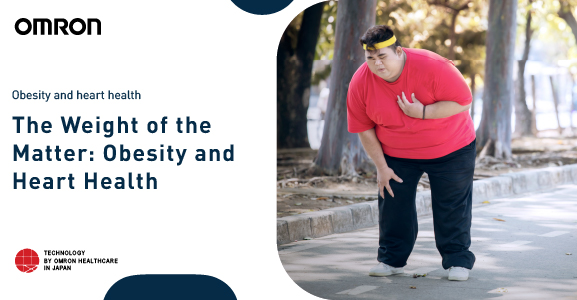The Weight of the Matter: Obesity and Heart Health
June 14, 2024 2024-09-05 19:03The Weight of the Matter: Obesity and Heart Health

The Weight of the Matter: Obesity and Heart Health
Obesity is a growing concern worldwide, and it’s not just about appearance; excess weight carries a significant risk for various health problems, with heart disease being a major one. In this blog, we’ll delve into the connection between obesity and heart health, explore how obesity affects the heart, and discuss steps you can take to improve both.
Recognizing the Connection
Obesity is a complex issue, but there is no doubting about its impact on cardiovascular health. Your entire cardiovascular system is strained when you are overweight. See how it affects:
- Elevated Blood Pressure: Being overweight makes it harder for your heart to circulate blood throughout your body. An important risk factor for heart attacks and strokes is high blood pressure, which is brought on by this increased workload.
- Unhealthy Cholesterol Levels: Being obese can cause “bad” LDL cholesterol to increase and “good” HDL cholesterol to drop. This imbalance increases the risk of coronary artery disease by encouraging the accumulation of plaque in your arteries, which narrows them.
- Insulin Resistance: Being obese might reduce your body’s sensitivity to the hormone insulin, which controls blood sugar levels. Insulin resistance is a condition that could develop into type 2 diabetes, another major risk factor for heart disease.
- Chronic Inflammation: Low-grade, persistent inflammation that affects the entire body is associated with obesity. Inflammation like this has the potential to harm blood arteries and exacerbate heart disease.
- Sleep Apnea: Obesity is more likely in those who suffer from sleep apnea, a common sleep disease characterized by frequent pauses and starts in breathing. Sleep apnea can raise blood pressure and put additional strain on the heart.
Above and Beyond the Figures
It is noteworthy that weight is not the only factor that determines danger. It matters where you put your weight. According to studies, central obesity—excess fat around the abdomen—raises the risk of heart disease more than fat deposited elsewhere.
The Power of Prevention
The good news is that you may greatly enhance your heart health with even a small amount of weight loss. Here are some actions that you can do:
- Diet: Make sure your diet is well-balanced and full of healthy grains, fruits, vegetables, and lean protein. Minimize sugar-filled beverages, processed meals, and harmful fats.
- Exercise: It’s important to get regular exercise. Aim for 150 minutes or more per week of moderate-to-intense activity or 75 minutes or more of strenuous exercise.
- Sleep: Seven to eight hours of good sleep a night is necessary for heart health and general well-being.
- Stress management: Extended periods of stress can aggravate heart disease and lead to poor lifestyle decisions. Use stress-relieving methods such as yoga or meditation.
The risk of heart disease is greatly increased by obesity through many processes, including high blood pressure and bad cholesterol. A small reduction in weight can have a significant impact. Emphasize stress reduction, a healthy diet, consistent exercise, and restful sleep. Consult your physician for specific advice. Recall that this is a path of empowerment. Create a support network, start small, engage in things you like, and form healthy habits. You can become a better, happier version of yourself by taking control of your health!






